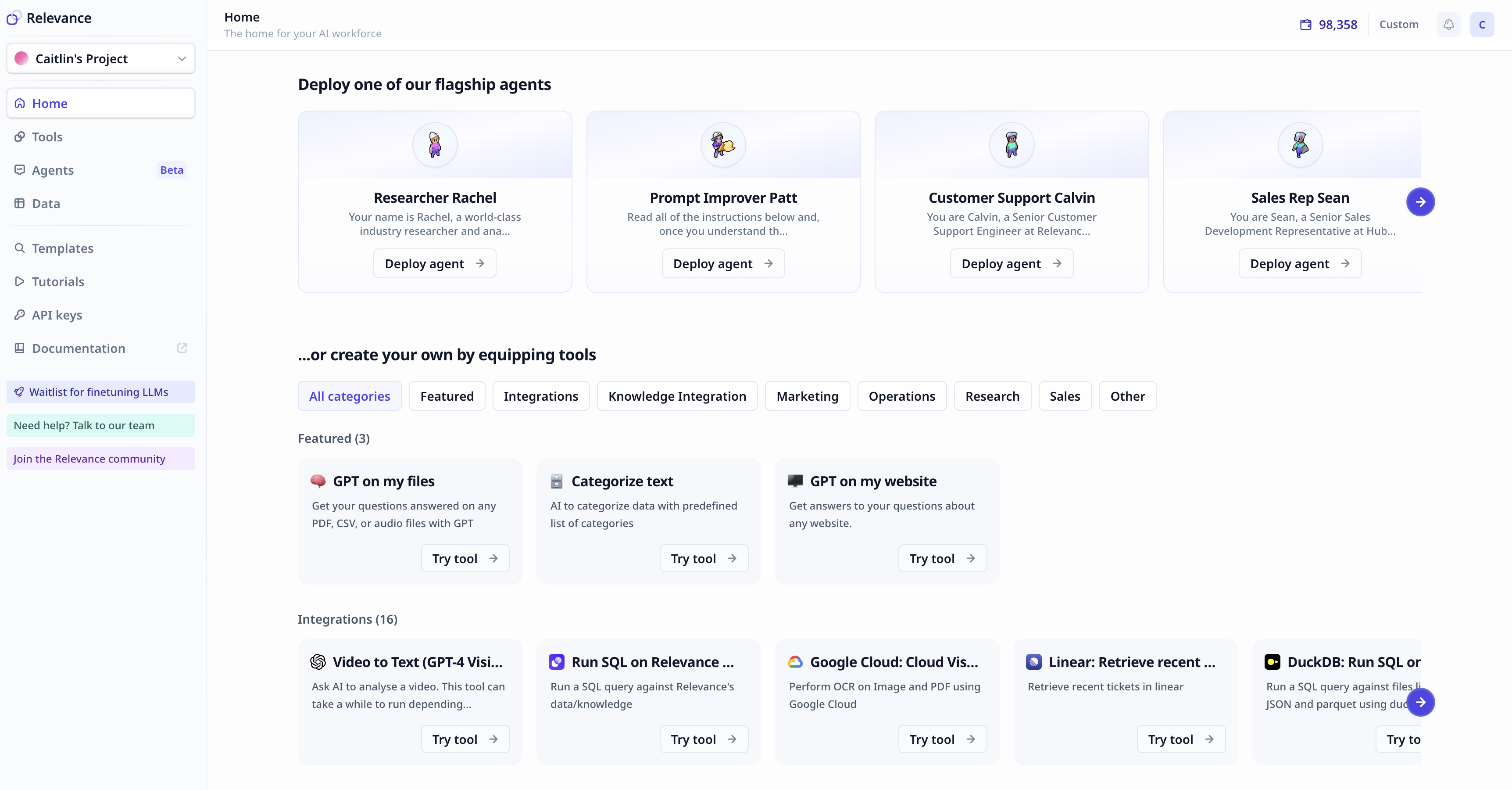Tech news|12.12.2023
Relevance AI’s low-code platform enables businesses to build AI teams
Many companies already use generative AI tools, like OpenAI’s ChatGPT, which can help improve workers’ performance by as much as 40% compared with workers who don’t use it.
Relevance AI’s low-code platform enables businesses to build AI teams
Kate Park@kateparknews / 5:31 AM GMT+7•December 12, 2023
Comment

Image Credits: Visual Generation / Getty Images
Many companies already use generative AI tools, like OpenAI’s ChatGPT, which can help improve workers’ performance by as much as 40% compared with workers who don’t use it. However, only businesses with large engineering teams can build their own AI workforces. An Australia-based startup, Relevance AI, wants to help companies of all sizes build custom AI agents for any use case or function to maximize productivity with its SaaS-based low-code platform.
“Our mission is to enable teams only to be limited by their ideas, not their size — from the seasoned industry player to the ambitious newcomer,” co-founder of Relevance AI Daniel Vassilev said. “We take out the complexity and make it possible for AI agents to work autonomously and complete detailed workflows or accomplish complex tasks with accuracy and predictability that companies can trust.”
The startup said it had raised $10 million (AUD 15 million) in a Series A funding round led by King River Capital with participation from global investors Peak XV’s Surge, Galileo Venture and its previous investor Insight Partners. Relevance AI will use the new capital, which brings its total raised to $13.2 million, for its low-code platform that lets companies build and deploy custom AI agents to automate repetitive tasks.
Relevance AI claims approximately 6,000 companies signed up with Relevance AI over the previous three months alone and run over 250,000 tasks, such as answering customer inquiries, managing outbound sales or conducting market research. The company says it is now working with some of the biggest household names in tech, retail and fast-moving consumer goods.
“From a go-to-market perspective, we are starting out by focusing on two verticals, such as sales and support teams, as they tend to be text-based and have a significant return on investment (ROI),” Vassilev told TechCrunch.
It launched two products that customers are using today: AI Tools and AI agents. Users can plug and play into their existing workflows to automate repetitive tasks with the startup’s AI Tools and complete entire workflows, from research to marketing to sales with Relevance’s AI agents. Its latest flagship AI agent, the business development representative (BDR) agent, helps sales teams spend more time on calls selling and less on inbox management, follow-ups and answering basic questions. Relevance AI is currently onboarding customers to it, according to Vassilev.
The company believes “every team will have hired at least one AI agent by 2025, and by 2030 have full-fledged AI team supporting them.”

Image Credits: Relevance AI
Relevance’s target customers are companies and teams looking to put repetitive work on autopilot with a trusted AI co-worker, Vassilev told TechCrunch. “Unlike a typical chat interface for speaking with an assistant, Relevance AI is focused on task-based outcomes with an experience for delegating work rather than individual conversations,” Vassilev said.
Many applications could benefit from automating repetitive tasks with Relevance’s platform, Vassilev continued. For example, product managers can use the agents to help produce specs and research or engineers to assist with code reviews. The startup is already experimenting with more multi-modal use cases involving image and audio.
Vassilev, Jacky Koh and Daniel Palmer founded Relevance AI in 2020. It has 19 staff, aiming to be around 30 by mid-2024. The plans are to scale its team and expand its U.S. presence with an office in San Francisco next year.
